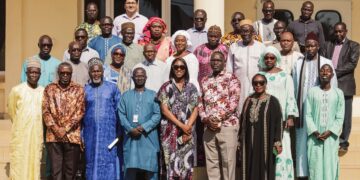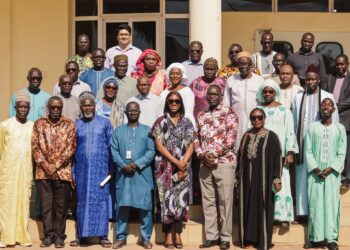Miriam Makeba, often called “Mama Africa,” was a South African singer, songwriter, and civil rights activist who used her music to fight against apartheid and injustice. Born in 1932, Makeba gained international fame for her powerful voice and unique blend of traditional African music with jazz, folk, and world sounds. Beyond her musical influence, she was a strong advocate for human rights, becoming a global symbol of resistance against racial oppression. Throughout her life, she collaborated with legendary artists, addressed the United Nations, and inspired generations with her fearless activism and artistry.
15 Facts About Miriam Makeba
1. Birth and Early Life – Miriam Makeba was born on March 4, 1932, in Johannesburg, South Africa. Her birth name was Zenzile Miriam Makeba.
2. Nicknamed “Mama Africa” – She earned the title “Mama Africa” because of her role in promoting African culture and advocating for the continent’s struggles on a global stage.
3. Early Music Career – Makeba began her music career in the 1950s as a member of the Manhattan Brothers, a popular South African group, before forming her own all-female group, The Skylarks.
4. Banned from South Africa – After testifying against apartheid at the United Nations in 1963, the South African government revoked her citizenship, exiling her for over 30 years.
5. Grammy Award Winner – She won a Grammy Award in 1966 for her collaboration with Harry Belafonte on the album An Evening with Belafonte/Makeba.
6. Global Breakthrough Song – Her song Pata Pata, released in 1967, became her most famous hit worldwide.
7. Marriage to Stokely Carmichael – In 1968, she married Black Panther activist Stokely Carmichael, which led to her being blacklisted in the U.S. and moving to Guinea.
8. Spoke at the UN – Makeba addressed the United Nations multiple times, speaking against apartheid and advocating for African freedom and unity.
9. Acting Career – She appeared in the anti-apartheid film Come Back, Africa (1959), which helped her gain international recognition.
10. Lived in Several Countries – During her exile, she lived in the U.S., Guinea, and Belgium before finally returning to South Africa in 1990 after Nelson Mandela’s release.
11. First African Woman to Receive a Grammy – She was the first Black African woman to win a Grammy Award.
12. Political Activism Through Music – Her songs often carried strong anti-apartheid messages, blending music with activism.
13. Return to South Africa – After 31 years in exile, she returned home in 1990, welcomed by Nelson Mandela.
14. Continued Performing Until Her Death – She remained active in music and activism until she passed away on November 9, 2008, after performing in Italy.
15. Legacy and Influence – Makeba’s influence continues today, inspiring musicians, activists, and political leaders across the world. She remains an icon of African resistance and cultural pride.



















































































 EduTimes Africa, a product of Education Times Africa, is a magazine publication that aims to lend its support to close the yawning gap in Africa's educational development.
EduTimes Africa, a product of Education Times Africa, is a magazine publication that aims to lend its support to close the yawning gap in Africa's educational development.